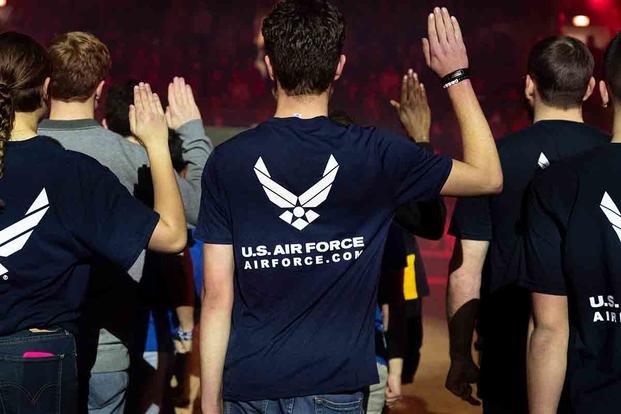Too many young people looking to join the U.S. military treat their first visit to the recruiter as a job fair, not a job interview. Walking into a recruiter's office with no idea how the process works, what job you want or minimal preparation is the first step to perhaps not enjoying the next few years.
Instead of flying blind, take some initiative: Prepare physically, study for the ASVAB and know what you must bring into the office on the first day. This may take extra preparation time, especially if you seek a competitive military occupation training program, but if you start preparing now and learn how to be a better recruit, it could make a huge difference in how smooth your entry process is.
Joining the military requires a level of preparation that depends on the job you want after basic training. For instance, joining to gain valuable communication or information technology skills will require a different type of physical preparation than someone wanting to join any special operations program. However, both require academic test-taking skills to perform well on the ASVAB and a baseline of physical fitness to be within the height, weight and physical training standards of the branch you select. You may even need advanced fitness and education if you have additional career goals in any field.
Part of the preparation necessary to join the military requires working on any weakness that could be exposed during advanced schools or competitive tests to enter a career training pipeline. Researching what you need to prepare for is your responsibility before joining, as there will likely be an unexposed weakness you have to deal with during stressful military training. Before and during the recruitment process, all of these challenges are in your control, so you need to add studying and specific training to get accepted into any exclusive military program.

Items in Your Control Before Joining
Crushing the physical training (known in the military as "PT") test on the first attempt is about physical ability, mental preparedness and dedicated training. Achieving the necessary level of each can take several months, so get on a program now: You need to start preparing for the specifics of any selection process as soon as possible, and passing the fitness test is the first step.
By consistently preparing and exceeding the requirements, you show the recruiters you are committed and ready for the challenges ahead. There's no room for hesitation or second-guessing regarding the PT test; you must be ready to conquer it quickly once in the Delayed Entry Program.
Special operations recruiters are looking for candidates who are not only physically fit but are also mentally strong. Nuclear power and high-tech occupations are also looking for recruits who set themselves apart from the competition by showing up physically and academically prepared. It's not just about meeting the minimum standards but easily exceeding them, demonstrating your dedication to the process and your ability to handle the physical demands of the military.
Imagine the confidence and sense of accomplishment you will feel when you walk into the recruiter's office and crush the ASVAB and the PT test on your first attempt. This sets the tone for your entire journey in joining the military. You will show recruiters you are a serious, prepared and determined candidate. This positive impression can set the stage for a successful career in the military, because you will likely get your desired choice of initial training after basic training.
Remember, your ability to exceed expectations and stay disciplined will benefit you in the selection process and will also be essential as you move forward in your military career. You will continue to be rewarded for taking the initiative now and putting in the preparatory work throughout your military career.
It is now easier than ever to find information, but you must ensure you get reliable and updated information on the recruiting process and job training afterward. See the official military websites and start your research.
Notice the webpages above are filled with cool jobs that show special ops of each branch, pilots, soldiers shooting guns, Marines doing hand-to-hand combat and the Coast Guard taking out drug smugglers. These are all great jobs, and you can be a part of them, but you need to prepare yourself for the challenges.
Stew Smith is a former Navy SEAL and fitness author certified as a Strength and Conditioning Specialist (CSCS) with the National Strength and Conditioning Association. Visit his Fitness eBook store if you're looking to start a workout program to create a healthy lifestyle. Send your fitness questions to stew@stewsmith.com.
Want to Learn More About Military Life?
Whether you're thinking of joining the military, looking for fitness and basic training tips, or keeping up with military life and benefits, Military.com has you covered. Subscribe to Military.com to have military news, updates and resources delivered directly to your inbox.


















